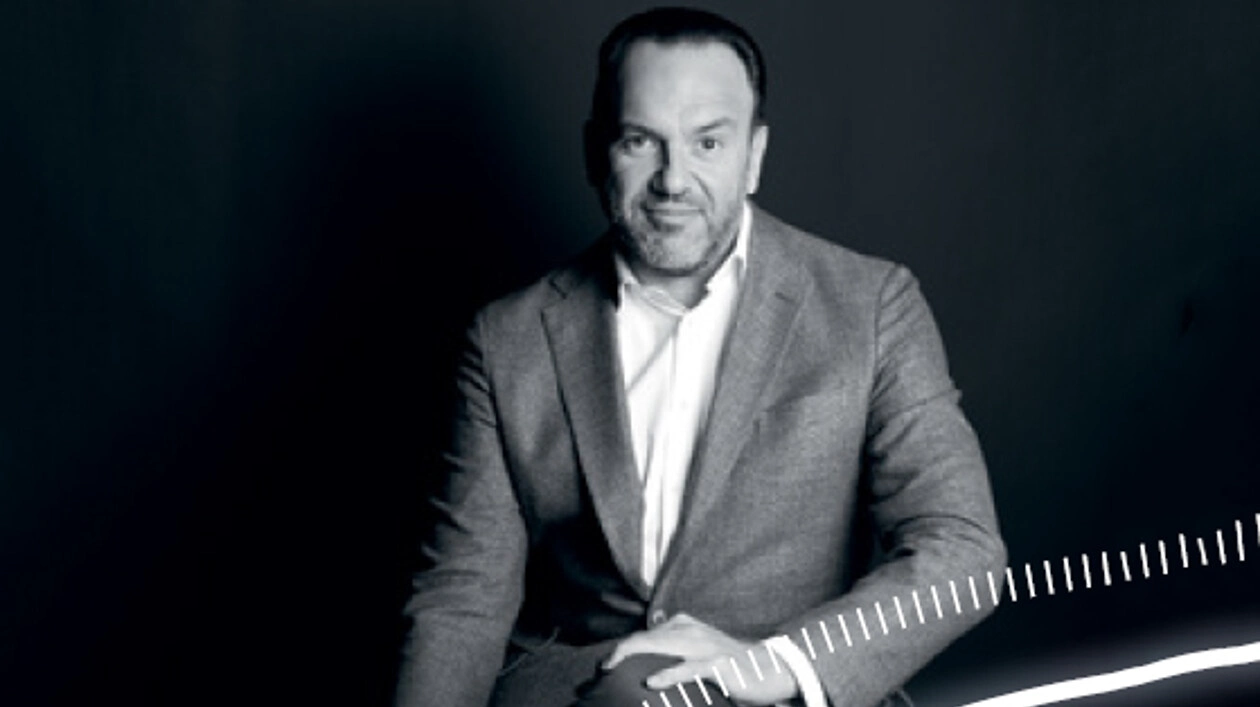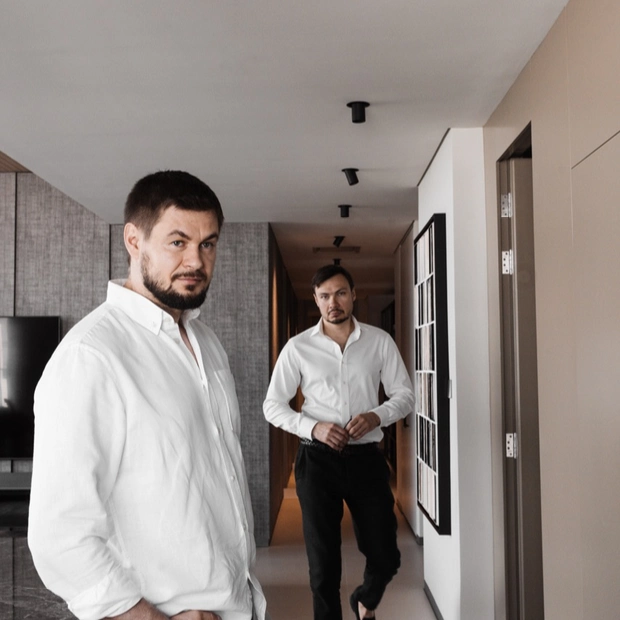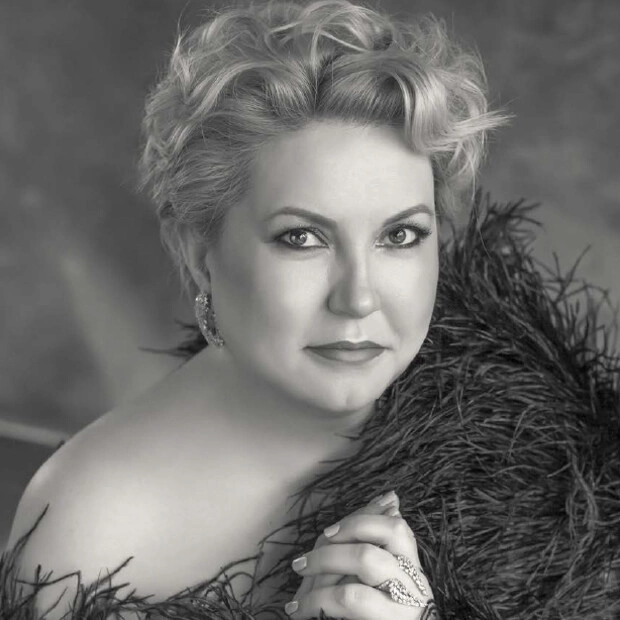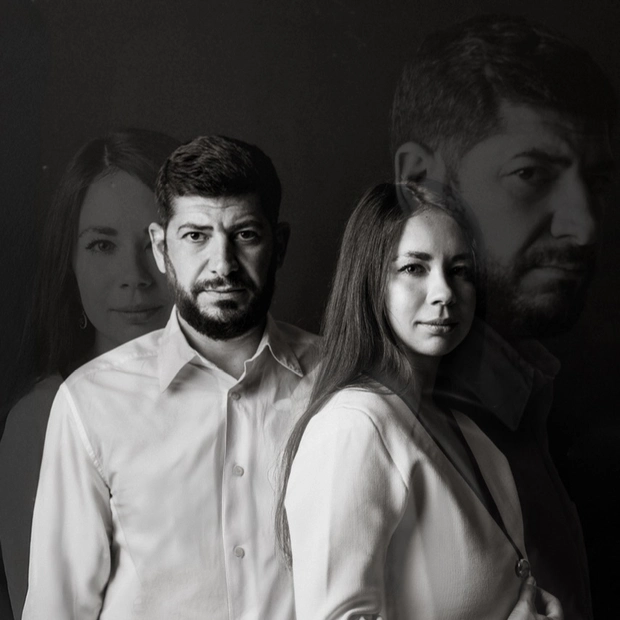According to Voltaire, there’s nothing longer than time, the ultimate measure of eternity, on the one hand, and nothing shorter than time, as we never have enough of it to make our dreams come true on the other. In a sense, private banking is a conversation about the meaning of life between a banker and an individual with all their basic needs met, time being their most essential investment & resource. Dmitry Breytenbikher, VTB Senior Vice President & Private Banking Head, dwells upon what time or events of biblical proportions can do to money, what man can do with time and money, and a host of other things.
Speaking about ‘modern private banking’ is not quite right, as little has changed in this sphere over time. The bank is still expected to provide effective expert asset management. That’s where trust starts. Service or, in other words, relationship management strengthens it. There’s no way you can be effective neglecting the customers’ needs, say, forgetting to reissue their cards, thus leaving them on the rocks, or failing to pay their taxes or doing other assignments. In the meantime, it’s digital communication with clients and the high quality, convenience, and safety it provides that matter the most nowadays. Still, the effectiveness of the whole system wholly depends on the personal manager.
Each customer is always served by the same manager. They’ve known each other for a long time, so the level of their mutual understanding and trust is high. The personal manager is the channel delivering the product from the bank to the consumer. The banker is the client’s centre of expertise, i.e., knowing the latter’s needs & preferences and the current market situation, the manager selects products most suitable for the particular consumer preference profile. So, a personal manager is still a must-have. The Big Data mechanism is an effective tool helping to identify the spending specificity and causes as well as to anticipate the customer’s wishes, thus improving the personal management service. The database provides a better knowledge of the clients, their behaviour, and interaction with people reflected in the data, so one’s risk profile is calculated automatically and with high precision.
The second portion of information has to do with the current market analysis, which is also done automatically and quickly. Our clients receive selective recommendations on what’s to be done under the changing market circumstances. The personal manager gets orders from our analysts and the VTB-Capital portfolio managers to rebalance portfolios. It’s a great time-saver, which, according to Karl Marx, is what a comprehensive development of both an individual and society depends on.
How could you list your personal doctor, banker, lawyer, psychologist, and coach in the ascending or descending order of importance? With the credibility gap bigger than any other in this country, one’s manager sometimes tops the list leaving behind their doctor. Our ‘Honesty in Private Banking’ project proves that we are always on the customers’ side, taking care of their interests without any hidden charges. We scrutinise all our new products through our customers’ eyes and from their interests’ perspective.
In March 2020, it became obvious that the unprecedented fiscal and monetary measures promptly taken by all governments and central banks would entail a liquidity overhang, which would have to go somewhere. Stock markets have become the adsorbent of that surplus and have been growing since then. We’ve been giving specific recommendations on stocks and conducting online conferences for our VIP club members to tell them that, in comparison with America, the European market has not regained its positions yet. Many stocks have lost 50 % of their value after the Chinese market’s dramatic fall. Russia has always been in a good position in terms of oil and gas prices, and its cyclic industries have been benefitting from the economic recovery. In the meanwhile, VTB has added another 20 % to the growth index observed in early 2021.
Closed-end investment funds (CEIFs) are becoming popular both in Russia and elsewhere. Today, many want maximum transparency, and this tool can accommodate real estate and shares in Russian and foreign companies. The earnings can be easily reinvested without paying an income tax. It is, indeed, very advantageous.
After the pandemic started, we’ve been advising our clients on what to do in response to the constantly and rapidly changing investment market. Our Advisory tool is very effective if a client and his broker in charge of direct market investments keep in touch via the Internet. Taking into account the hype topic of getting the latest stock information in real time, we’ve simplified this tool a little bit, so now, it starts at a lower sum. Your advisor is in touch at all times to remind you that a share has reached its growth limit, and it’s time for the next step. We’re observing the popularity of the service growing many-fold. Our clients are very smart and able to foresee both the general market situation and long-term economic trends. They’re also fully aware of the fact that investment management is a special craft of its own kind, which only professionals should be entrusted with. In the meantime, it is not the classical trust management when you leave your money at the bank’s disposal to never bother about it afterwards. The final decision is always up to the client. That’s why our Advisory service is gaining more and more popularity.
Conservative banking has always ruled the Russian market. Five or seven years ago, hardly anyone made any difference between their own and the company funds. It was like, ‘This is a nice house, so I’ll just cough up and get it’. Or just the opposite, ‘Here’s some good armature. Why not buy it beforehand?’ So, people would invest their personal funds and then get bank loans. Nowadays, there is a differentiation between the two. Back in 2018 and 2019, with a high interest on savings, no one expected excess returns. Making money is all very well, but one’s own funds must be safe and sound. We did our best to educate people that with risk-free fixed-income bonds available, the stock market is neither a lottery nor a shady deal, so they started trusting in tomorrow and taking on loans.
Then, we worked out and offered our clients ‘subords’ (subordinated loans), i.e., bonds with a purchase option available in five and a half years’ time. In comparison with deposits and the classical bond market, they are more profitable. For example, the fixed rate is 10 % in roubles, 5% in USD, and 3.75% in EUR. We’ve worked out a peg to the Russian key rate in case of a fall or a growth, thus hedging our clients against inflation in any scenario. We’ve sold more than we expected, and our new clients want this particular tool. VTB Private Banking has scored 90.86 points and topped the rating.
That’s how we’ve become the leader in the number of clients and the amount of finance. According to Forbes, over the year, the funds under our management have increased by 26% and amounted to 2.94 trillion roubles. It means our product and service quality remains high in spite of the rapid growth. Our customers know very well how financial markets work, so they understand there’s a lot of investment expertise and well-arranged work behind it. Our cooperation is similar to the Johari window technique, enabling our clients and us to understand each other better. The window’s limits and frames are expanding all the time, increasing the interaction potential and bringing good results.
Now, we’ve found ourselves in the situation of accelerated growth with digital technologies introduced everywhere. Nothing of the kind happened even when the sleepy agricultural period gave way to the leap of the Industrial Revolution. Last year, the whole world froze in the lockdown, which has proved to be a unique experience allowing us to leap ahead in terms of monetary and fiscal stimulation. Time has shrunk and brought us into a new epoch together with our children born into a digital world. Gadgets in their hands are like rattles in ours when we were their age. They are very good children and very different too. They care for likes more than for money, and there’s hardly anything we can surprise them with, having to turn to them for help choosing a video card or a processor. If I join my son in his computer game, I’m sure to get killed by the first shot. We’re living in a time when our children are way ahead of us in these new areas of knowledge.
So, I’d rather not even try to learn to play shooters like the young can but stay where I am to reach the best professional level possible and create something new. Such is our project in the VTB Privileges segment to be launched after two years of leadership in private banking. Once again, I leave my office at midnight, forgetting about food and time, so carried away by the project, the drive, and our fellowship.
I will always love my Dovlatov. Perhaps, one fine day, even the digital generation will read his texts revealing the personality of an earnest and, by all means, talented writer and appreciate his watchful eye and ability to capture the absurdity of the everyday and describe it on paper with a humorous undertone, making everybody - including sporadic readers – roll with laughter. His characters are easily recognisable despite the specifics of his time. Dovlatov’s works are similar to those of a gifted cartoonist able to depict everything quite clearly by a single stroke.
By the way, the idea of a new earnestness introduced by Prigov, Epstein, and Dovlatov, later continued by Pelevin, might as well prove more understandable and touching for the new generation than postmodernism. The meta-position often observed in Generation Z is typical of the humanist and existential paradigm. Concerned with environmental issues and the planet’s future, they are truly earnest in their special way.
Ours is the era of the intellectual economy, so the brain is the main investment target now. In the course of its history, humanity has gone through hunting and gathering, agriculture and cattle breeding, and the industrial epoch. Now, we live in the age of intellect. We’ve got an incredible amount of information available, so it’s vitally important to be able to choose the essential and filter out the trash. Developing yourself and improving your strengths is investing in yourself, which is sure to produce tangible results. This is the only way to be prepared for the future that has already become reality and professions coming our way tomorrow whose names we don’t even know yet.
This unawareness might as well be for the better, as we are programming the trajectory of the future right now. We’re just making notes for someone to read somewhere down the line. Our ideas might appeal to somebody and inspire them to write a short story or a novel, while others might be driven to say, ‘Well, indeed, why am I not moving on? Maybe, I should focus more on what’s connected with my current job and learn to invest. I’d better sign up for a special course’. And they will invent something. That’ll mean we have not wasted our time but invested it in the future.






